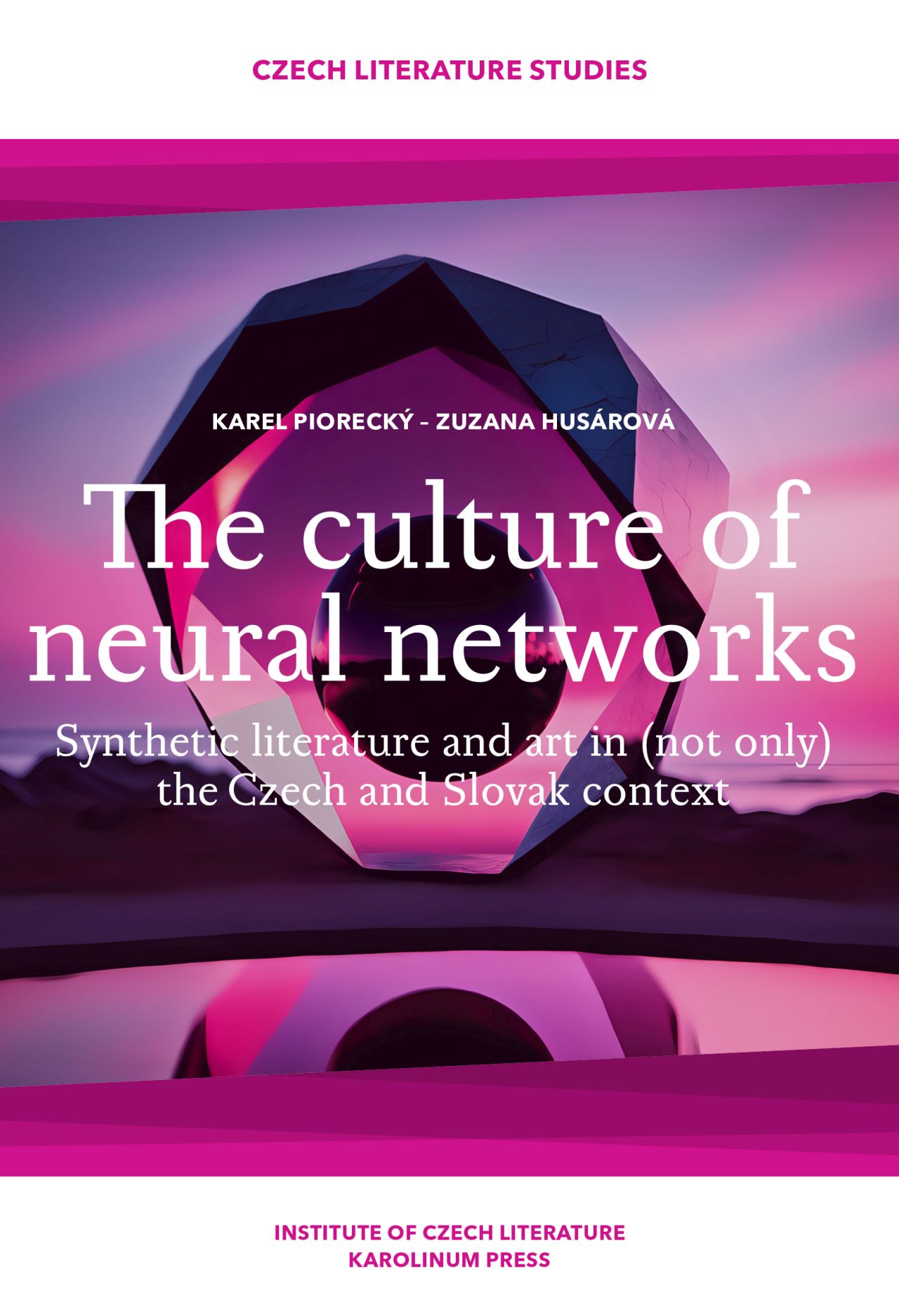New release
The Culture of Neural Networks. Synthetic Literature and Art in (Not Only) the Czech and Slovak Context
A monograph on contextualization of the phenomenon of generating literary texts using the latest technologies.
Publishing house:
Karolinum Press: https://karolinum.cz/en/books/piorecky-the-culture-of-neural-networks-30719
Institute of Czech Literature of the CAS: https://ucl.cas.cz/produkt/the-culture-of-neural-networks/
The possibilities of generated cultural production have undergone fundamental changes in recent years, leading to a rethinking of existing approaches to the text and the artwork as such. To grasp this process, Zuzana Husárová and Karel Piorecký propose the term “neural network culture,” which captures a wide range of generative practices and reception mechanisms. The Culture of Neural Networks contextualizes the phenomenon of literary texts and other artifacts generated using the latest technological techniques. The generation of literary texts using neural networks is part of a broader cultural process, to which this publication formulates a position through the lens of literary science, media theory, and art theory.
The scholarly debate over this topic has been inconsistent—on the one hand, it underestimates the diachronic connections between generated texts and the tradition of experimental and conceptual literature; on the other hand, it does not sufficiently clarify the new-generation procedures and the contribution of human and technological actors in them. Therefore, Husárová and Piorecký propose the notion of synthetic textual art, which reflects the specific roles of the different actors involved in generative practice and its intermedial nature. In doing so, they approach the topic from both historical and theoretical perspectives, analyzing the current state of generative practice in all three basic literary types and in the intermedial space using selected foreign and Czech-Slovak projects. This state of affairs is often distorted in media discourse and even mythicized in terms of the capabilities of “artificial intelligence”; therefore, a critical analysis of this media discourse is essential. Finally, the authors summarize the implications of this stage in the development of generative practice on creativity theory and literary theory.
(from the publisher's website)
Information
See also
From the House of the Slave to the Home of the Brave. The Motif of Home in Poetry by Black Women since the late 1960s
Author/Editor: Jerzy Kamionowski
Kategoria: Filologie obce Autorzy: Jerzy Kamionowski Rok wydania: 2019 Numer ISBN: 978-83-7431-592-0 Liczba stron: 169 Format: B5, oprawa twarda Wydawncitwo Uniwersytetu w Białymstoku
Reassessing Communism. Concepts, Culture, and Society in Poland, 1944-1989
Author/Editor: Katarzyna Chmielewska, Agnieszka Mrozik, Grzegorz Aleksander Wołowiec
The thirteen authors of this collective work undertook to articulate matter-of-fact critiques of the dominant narrative about communism in Poland while offering new analyses of the concept, and also examining the manifestations of anticommunism. Approaching communist ideas and practices, programs and their implementations, as an inseparable whole, they examine the issues of emancipation, upward social mobility, and changes in the cultural canon.
Essays Commemorating Szmul Zygielbojm
Author/Editor: Michael Fleming
This book brings together papers that were presented at a workshop in May 2018 to commemorate the seventy-fifth anniversary of Szmul Zygielbojm’s protest suicide. The workshop was organised at The Polish University Abroad within the framework of an ongoing seminar series on twentieth century Polish history.5 The volume opens with a message from Zygielbojm’s grandsons, Dr Arthur I. Zygielbaum and Paul S. Zygielbaum, to participants of the workshop (see p. 11), in which they highlight the continuing relevance of their grandfather’s sacrifice (Michael Fleming, Introduction).
Gender, Generations, and Communism in Central and Eastern Europe and Beyond
Author/Editor: Anna Artwińska, Agnieszka Mrozik
Communism in twentieth-century Europe is predominantly narrated as a totalitarian movement and/or regime. This book aims to go beyond this narrative and provide an alternative framework to describe the communist past. This reframing is possible thanks to the concepts of generation and gender, which are used in the book as analytical categories in an intersectional overlap.
